Apr 2017 2nd Edition
Apr 2017 2nd Edition Joy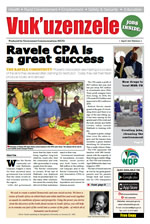
Translations
Advertorial: Regulating lotteries
Advertorial: Regulating lotteries Estelle GreeffRunning a Lottery in SA
1. What is a lottery?
 The Lotteries Act 57 of 1997, as amended defines a lottery as any scheme, arrangement or plan, promotional competition or device for distributing prizes by lot or chance.
The Lotteries Act 57 of 1997, as amended defines a lottery as any scheme, arrangement or plan, promotional competition or device for distributing prizes by lot or chance.
2. What are the different types of lotteries?
- The South African National Lottery
- Private Lotteries
- Society Lotteries
- Lottery incidental to exempt entertainment
- Promotional Competitions
3. Who is eligible to run these lotteries?
- The South African National Lottery: The National Lottery may only be run by the licensed national lottery operator which is appointed by the Minister of Trade and Industry.
- Society lotteries: Society lotteries can be operated by non-profit organisations, any club, institution, organisation or association of persons.
- Private lotteries: Any club, institution, organisation or association of persons may operate private lotteries.
- Incidental to exempt entertainment: Non-profit organisations, any club, institution, organisation or association of persons may operate this type of lottery.
- Promotional competitions: Promotional competitions may be run by business entities & non-profit companies.
4. What are the requirements for running a lottery?
- National Lottery: Every eight years interested parties are invited by advertisement across national media platforms to submit proposals to run the National Lottery.
- Private lotteries and lotteries incidental to exempt entertainment: It is advisable to contact the National Lotteries Commission for advice before conducting these forms of lotteries. Regulatory requirements are contained in regulation R414 and R413 respectively.
- Society lottery: Prior to conducting this form of lottery, you are required to apply to the National Lotteries Commission for registration as a society and for registration of the lottery scheme.
- Promotional competitions: Promotional competitions are regulated under the provisions of Section 36 of the Consumer Protection Act No. 68 of 2008 administered by the National Consumer Commission.
5. Who is excluded from eligibility to conduct lotteries?
Private individuals and profit-making organisations are not eligible to conduct society, private and lotteries incidental to exempt entertainment.
6. Is my lottery compliant?
Information is available from the following documentation on the NLC website, www.nlcsa.org.za
- Lotteries Act 57 of 1997,as amended
- Private Lotteries Regulations (No.R.414)
- Lotteries Incidental to Exempt Entertainment Regulations (No.R.413)
- Society Lottery Regulations (No.R.415)
- Consumer Protection Act and its regulations
Illegal lotteries
1. What is an illegal lottery?
Any game of chance (e.g fundraising raffle) not authorised by the NLC.
2. Types of illegal lotteries
- Fundraising competition conducted by a registered society (society in terms of section 41 of the Lotteries Act) without authorisation of the NLC
- Fundraising competitions conducted by non-profit organisations without the approval of the NLC
- Competitions (other than promotional competitions) conducted by profitmaking companies for financial and/or commercial gain
- Competition conducted by individuals for private financial gain
- Competitions conducted by profit-making companies for the benefit of nonprofit organisations without the authorisation of the NLC
- Fahfee (also known as mochaina)
- Scams received via sms, phone calls, emails and letters; and
- Lotteries conducted outside the Republic that may also be accessed via internet (prohibited in terms of section 59 of the Lotteries Act).
3. What are the consequences of running or participating in an illegal lottery?
Any person, who participates in or conducts, facilitates, promotes or derives any benefit from an illegal lottery, shall be guilty of an offence. Any person convicted of running an illegal lottery shall be liable to a fine or imprisonment or both.
4. What is the impact of illegal lotteries on the national Lottery?
The National Lottery contributes 25% of the funds raised to the National Lottery Distribution Trust Fund (NLDTF), which is distributed to good causes. Illegal lotteries do not contribute to the NLDTF, impacting the amount of revenue collected for good causes.
5. How do i avoid illegal lotteries?
To ensure that one is not participating in or conducting an illegal lottery, one must verify such competitions with the National Lotteries NLC prior to part taking or making arrangements to conduct any competition or scheme.
6. Where can i obtain more information on lotteries?
Information is available from the following sources on the NLC website, www.nlcsa.org.za :
- Lotteries Act 57 of 1997, as amended
- Private Lotteries Regulations (No.R.414)
- Society Lottery Regulations (No.R.415)
- Lotteries Incidental to Exempt Entertainment Regulations (No.R.413)
Contact the Regulatory Compliance Division at the nLC via email at: compenforce@nlcsa.org.za
A proactive funding model for inclusive growth
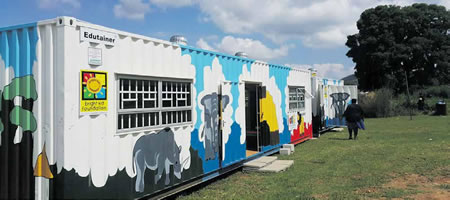 Starting out as the National Lotteries Board (NLB) in 1999, the organisation became a Commission in 2015 when the Lotteries Act was amended. Up to that point NLC funding was solely application-based, and each sector would announce a ‘call for applications’ for a specified period.
Starting out as the National Lotteries Board (NLB) in 1999, the organisation became a Commission in 2015 when the Lotteries Act was amended. Up to that point NLC funding was solely application-based, and each sector would announce a ‘call for applications’ for a specified period.
Regulations that came into effect in 2015 have given the NLC powers to implement proactive funding (based on research), where the organisation could identify areas of need, conduct research on worthy causes and make recommendations for funding – including in times of emergency.
How the pie is shared:
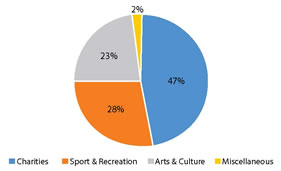
Did you know?
As per the 2015 regulations, NLC funding is categorised into the following:
- Small grants (up to R 500 000)
- Medium grants (R 500 000 – R 5 million)
- Large grants (in excess of R 5 million)
Funding for impact changing lives securing futures
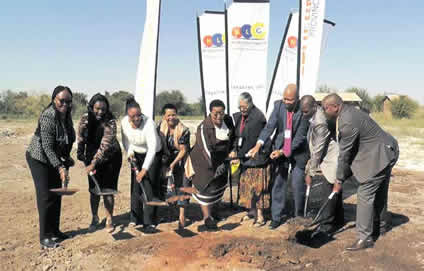 For almost two decades the National Lotteries Commission (NLC) has worked to uplift communities across South Africa.
For almost two decades the National Lotteries Commission (NLC) has worked to uplift communities across South Africa.
The NLC protects the public by regulating lotteries and uplifts communities by providing funding to good causes.
With over R20 billion distributed in funding to NPOs, NGOs, Section-21 Companies, Public Benefit Trusts, municipalities, schools and educational institutions in the areas of Charities, Sports and Recreation and Arts, Culture and National Heritage, the funding from the NLC has played a crucial role in the development of a holistic society.
Vision
To be the catalyst for social upliftment.
Mission
- To regulate all lotteries and sports pools with integrity and ensure the protection of all participants;
- To maximize revenue for good causes in a responsible manner; and
- To distribute funds equitably and expeditiously.
Core Values
The NLC is committed to achieving sustainable growth through the practice of good corporate governance, provision of excellent service and sound regulatory practice. In fulfilling the Mission the NLC embraces:
- Integrity;
- Performance excellence;
- Service excellence; and
- Social consciousness.
The NLC has developed a collaborative culture with stakeholders. This is visible through platforms such at the national Indaba and the Post Indaba Stakeholder Engagements in each province.
The suggestions received from stakeholders at these platforms help the NLC to plan the way forward, and assist in creating the desired customer experiences.
Demand and supply: A delicate balancing act
The demand for grant funding always exceeds available resources and the NLC cannot satisfy every need. For this reason, strategic decisions have been taken regarding the focus for grant funding in each year.
Priority areas for funding are now outlined with in the adverts to ensure that there is a fair distribution of funds.
Building sustaniability for beneficiaries
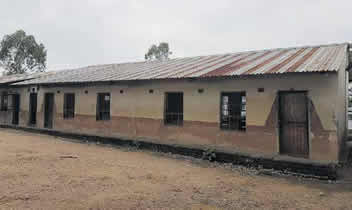 Funding for impact goes beyond the distribution of grants. While the NLC provides funds to NGOs/NPOs to serve communities, the aim is not to create a culture of dependency, but rather sustainability.
Funding for impact goes beyond the distribution of grants. While the NLC provides funds to NGOs/NPOs to serve communities, the aim is not to create a culture of dependency, but rather sustainability.
With this in mind, a programme of capacity building for beneficiaries was developed and rolled out in the Northern Cape, Mpumalanga, Free State and the North West during 2016.
The capacity building programme was targeted at selected beneficiary organisations, equipping them with skills in governance, financial management, project management and procurement. Pitched at NQF Level 4, with training provided by a SAQA-accredited institution, the programme gives participants skills that will be recognised in the marketplace and empower them as individuals as well.
The Capacity Building Programme aims to empower beneficiaries to reach a position where they are able to access alternative sources of funding.
Giving a lifeline to the children of Vuwani
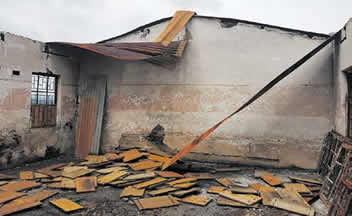 “The children of any nation are its future. A country, a movement, a person that does not value its youth and children does not deserve its future”. – Oliver Reginald Tambo
“The children of any nation are its future. A country, a movement, a person that does not value its youth and children does not deserve its future”. – Oliver Reginald Tambo
When an ‘SOS’ was sent out for assistance to schools which were razed to the ground during a series of protests in Vuwani (Limpopo) in 2016, the NLC was among the first to take action to help.
Over 20 schools were destroyed and learners were left stranded at a critical time in the academic calendar.
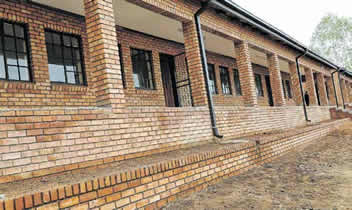 Through its proactive funding initiative, the NLC provided funds to rebuild Vhafamadi Secondary School in Ha-Mashau - a life changing intervention that saw learners using the facilities at the start of the 2017 calendar year. Funds from the NLC made it possible to build:
Through its proactive funding initiative, the NLC provided funds to rebuild Vhafamadi Secondary School in Ha-Mashau - a life changing intervention that saw learners using the facilities at the start of the 2017 calendar year. Funds from the NLC made it possible to build:
- New classroom blocks;
- Library;
- Computer lab;
- Science lab;
- National Schools Nutrition Programme standard kitchen;
- Multi-purpose hall;
- Installation of palisade fence to minimise instances of vandalism;and
- For the first time, the school was equipped with flushing toilets.
…Principal hails NLC as good corporate citizen
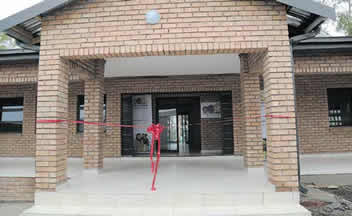 At a launch event in December 2016, Vhafamadi Principal Mashau Thenga expressed the school and community’s gratitude to the NLC for its assistance. In 2016, Vhafamadi had enrolled 867 learners with 26 educators.
At a launch event in December 2016, Vhafamadi Principal Mashau Thenga expressed the school and community’s gratitude to the NLC for its assistance. In 2016, Vhafamadi had enrolled 867 learners with 26 educators.
“We are so grateful to the NLC for coming to our rescue in rebuilding the school. This is an important lifeline for hundreds of children whose future was seriously threatened. We are proud of the work that the NLC is doing, not just in our area but throughout the entire country in ensuring a better future for our people,” Thenga said.
With Limpopo MEC for Education Ishmael Kgetjepe in attendance, Principal Thenga made a commitment on behalf of the teachers, students and the community in general to do all in their power to ensure that the facilities are protected, well maintained and kept in good state of repair.
Hailing the work of the NLC, MEC Kgetjepe commented: “The NLC continues to live up to its solid reputation as the catalyst for social upliftment throughout South Africa. It deserves all of our support in all its programmes”.
Proactive funding
Despite recent rains, the long-term effects of the drought persist in water scarce South Africa, and the NLC continues to urge communities across the country to continue to conserve water.
South Africa remains a water scarce country, and is not yet out of the woods when it comes to the long-term effects of the dry spell of 2015/2016.
In response to the needs of communities in need, proactive funding of R 50 million was allocated for drought relief through the installation of boreholes in areas with the most critical need.
Working closely with the Department of Water and Sanitation and municipalities to identify the sites for the boreholes, groundwater was tested before the drilling and installation began.
From this amount, 200 boreholes were installed in various communities in Limpopo, the Free State, Eastern Cape and Mpumalanga.
Fast facts
The provincial spread for the boreholes is as follows:
- Eastern Cape: 29
- Free State: 47
- Limpopo: 50
- Mpumalanga: 50
- North West: 24
The open call for applications - a benefit for good causes
In 2016, the National Lotteries Commission (NLC) launched an Open Call for Applications as testimony to its determination to improve service delivery and live up to the brand promise of a 150 day turnaround time from the submission of an application to the communication of the outcome.
What does the open call mean for grant applicants?
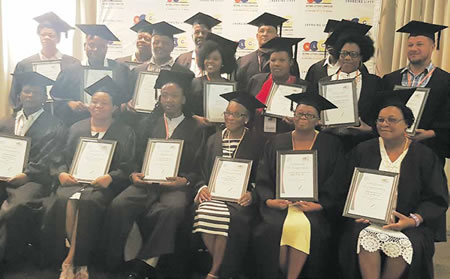 Applications for funding will be accepted throughout the year at all NLC offices with no closing date.
Applications for funding will be accepted throughout the year at all NLC offices with no closing date.- Previously, the fixed-term call for applications saw the NLC accept applications only if they were submitted during a fixed period (usually three months) annually. This often resulted in worthy causes not being able to access funding at other times.
- The new system will:
- Assist applicants to plan better;
- Allow for a continuous flow of applications spread across the year;
- Improve the applicant’s experience;
- Improve turnaround time in line with the amended Lotteries Act and regulations; and
- Assist in ensuring that each Province is allocated a minimum of 5% of the budget available per Sector.
- In line with the Lotteries Act No 57 of 1999 (as amended), funding will be limited to one application per organisation.
- Organisations will also have a “cooling-off” period of twelve months after receipt of the last payment across all sectors.
Strong roots for healthy growth
At the end of the 2014/2015 financial year, a R 500 million boost was allocated toward Early Childhood Education (ECD) infrastructure.
207 organisations were approved for funding, and the projects were launched in the 2016/2017 financial year.
The targeted funding was made available for this focus area due to the awareness around ECD as a critical component of school readiness. A component that does not only focus on the blackboard, but also on play, nutrition and other areas of physical and mental development.
95 brick-and-mortar structures and 112 fully equipped ‘edutainers’ will now serve various communities where infrastructure was previously a concern. The edutainers are provided in instances where land ownership issues may exist – allowing the NLC and funded organisation to relocate the units if need be.
Good to know:
- All the sites for the ECD centres have been selected in partnership with the Provincial Social Development departments, which helped to identify the communities with the most pressing needs.
- Building plans for the brick and mortar schools have also been pre-approved by the department and accommodate up to 120 children.
- The ‘edutainers’ are converted shipping containers, which include an office, sick bay and kitchenette unit. They accommodate a maximum of 30 children.
Contact us
National Lotteries Commission Head Office
Physical Address:
Block D, Hatfield Gardens, 333 Grosvenor Street, Hatfield, Pretoria, 0083
Switchboard: 012 432 1300
Fax: 086 523 7127
National Lotteries Commission @sa_nlc @sa_nlc
Postal Address:
Private Bag X101, Brooklyn Square, South Africa, Pretoria, 0075
Telephone: 08600 NLDTF (65383)
Email: nldtf@nlcsa.org.za
Provincial Offices:
Eastern Cape 043 813 3510
KwaZulu-Natal 031 817 4410
Limpopo 015 299 4660
Mpumalanga 013 813 4810
Northern Cape 053 813 4310
Western Cape 021 816 1810
Free State 057 815 3010
North West 018 815 3010
Advertorial: The Community Work Programme
Advertorial: The Community Work Programme Joy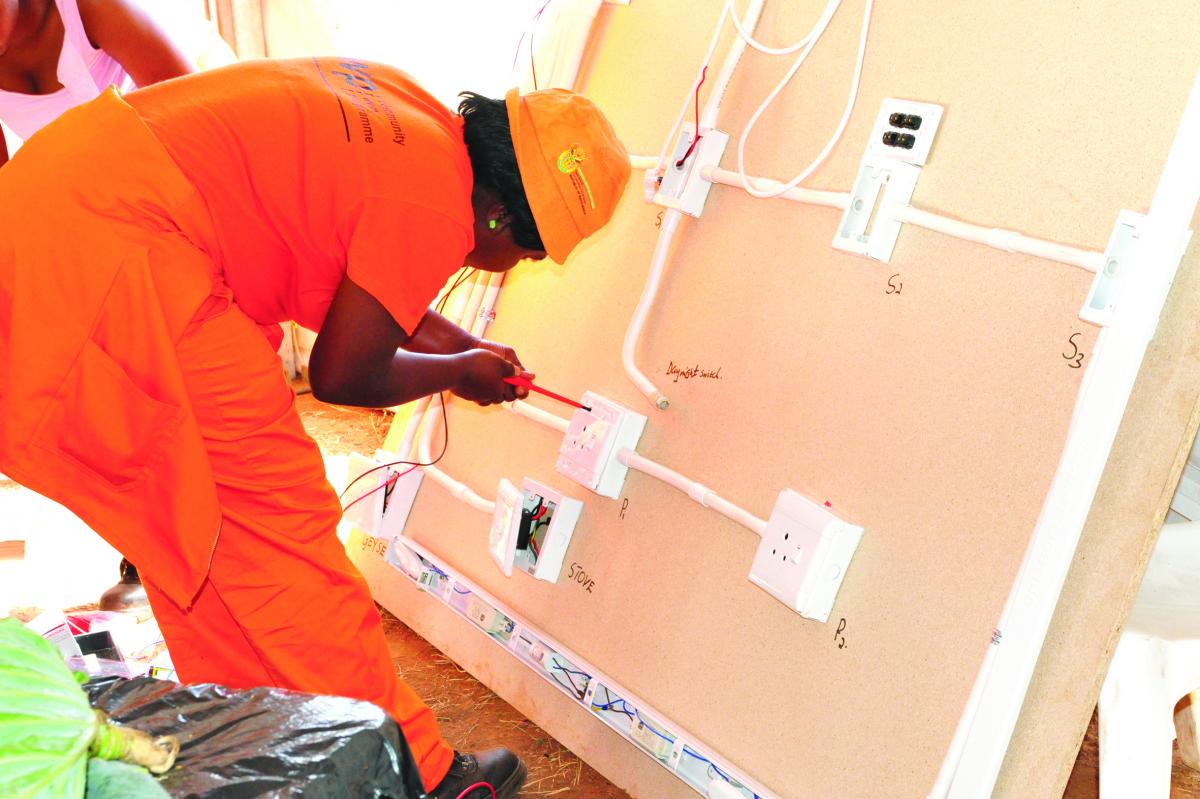 Restoring dignity through work opportunities
Restoring dignity through work opportunities
The Community Work Programme (CWP) is a community driven government programme based in the Department of Cooperative Governance (DCoG).
It is an element of Public Employment Programmes (PEPs) designed to address the triple challenges of poverty, unemployment and inequality.
It provides an employment safety net (not an employment solution) and basic minimum income for people living in marginalised areas where, often, employment opportunities are not easily accessible. It provides a baseline in terms of income security and economic access and participation.
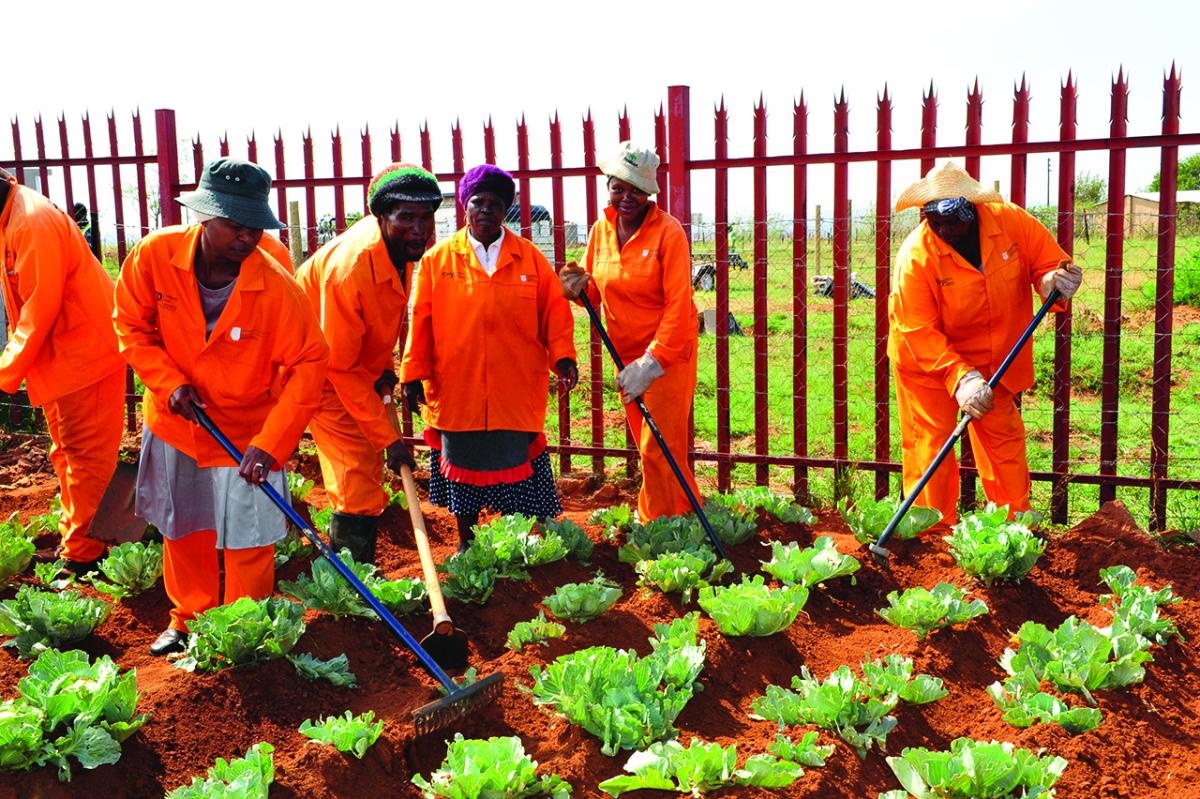 The Community Work Programme is currently being implemented in 243 sites covering a total of 213 municipalities. It is envisaged that by the end of the current financial year, the programme would have been extended to cover every municipality in the country.
The Community Work Programme is currently being implemented in 243 sites covering a total of 213 municipalities. It is envisaged that by the end of the current financial year, the programme would have been extended to cover every municipality in the country.
The CWP has over the years been able to establish 10 key strategic partnerships in order to enhance the quality of work outputs and sustain programme initiatives. However, Implementing Agents enter into a number of informal partnerships or cooperation arrangements in implementing various initiatives that contribute to useful work since work activities cut across different sectors.
The programme is area-based with sites usually covering several wards in a municipal area. Sites are located in areas where unemployment is high and alternatives are likely to remain limited for the foreseeable future.
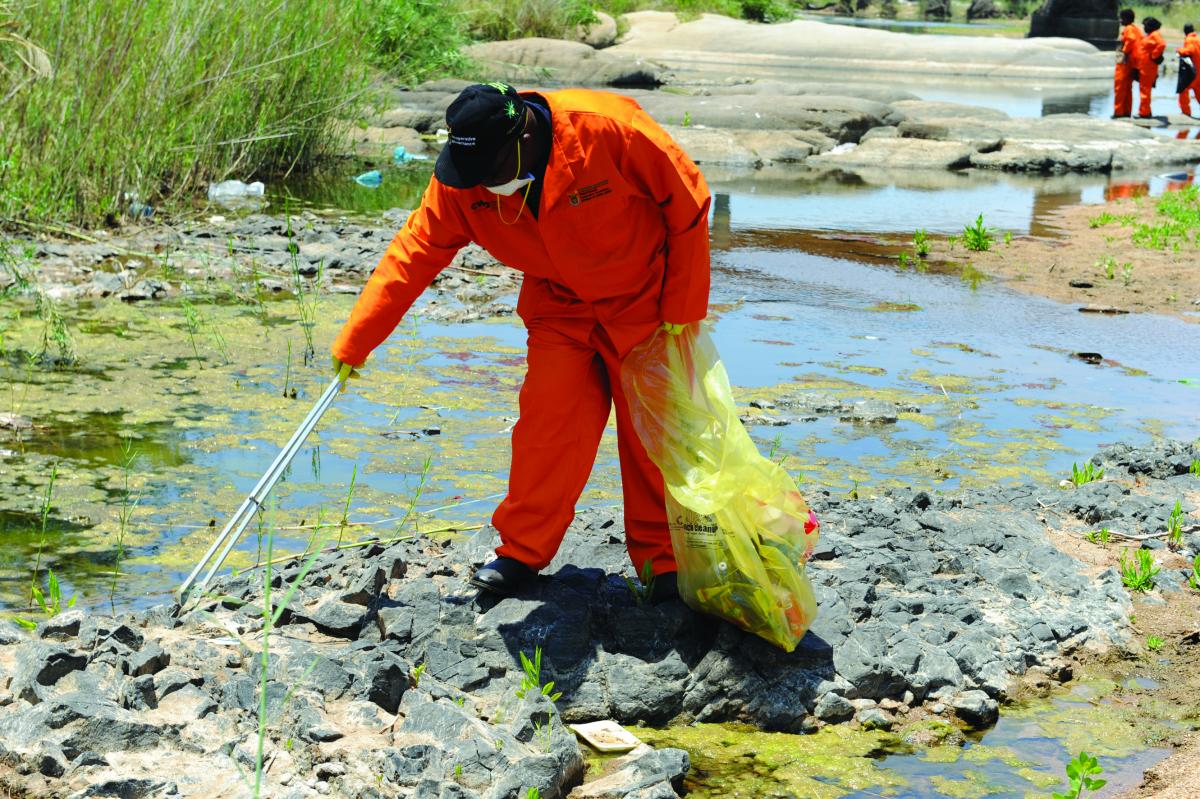 The programme is targeted at unemployed and underemployed women and men and aims to give those willing and able to work the opportunity to do so – although its ability to achieve this is limited by the constraints in the numbers of participants it can absorb at each site. It encourages youth, women and people with disabilities to enrol. The CWP is designed as an employment safety net, not an employment solution for participants.
The programme is targeted at unemployed and underemployed women and men and aims to give those willing and able to work the opportunity to do so – although its ability to achieve this is limited by the constraints in the numbers of participants it can absorb at each site. It encourages youth, women and people with disabilities to enrol. The CWP is designed as an employment safety net, not an employment solution for participants.
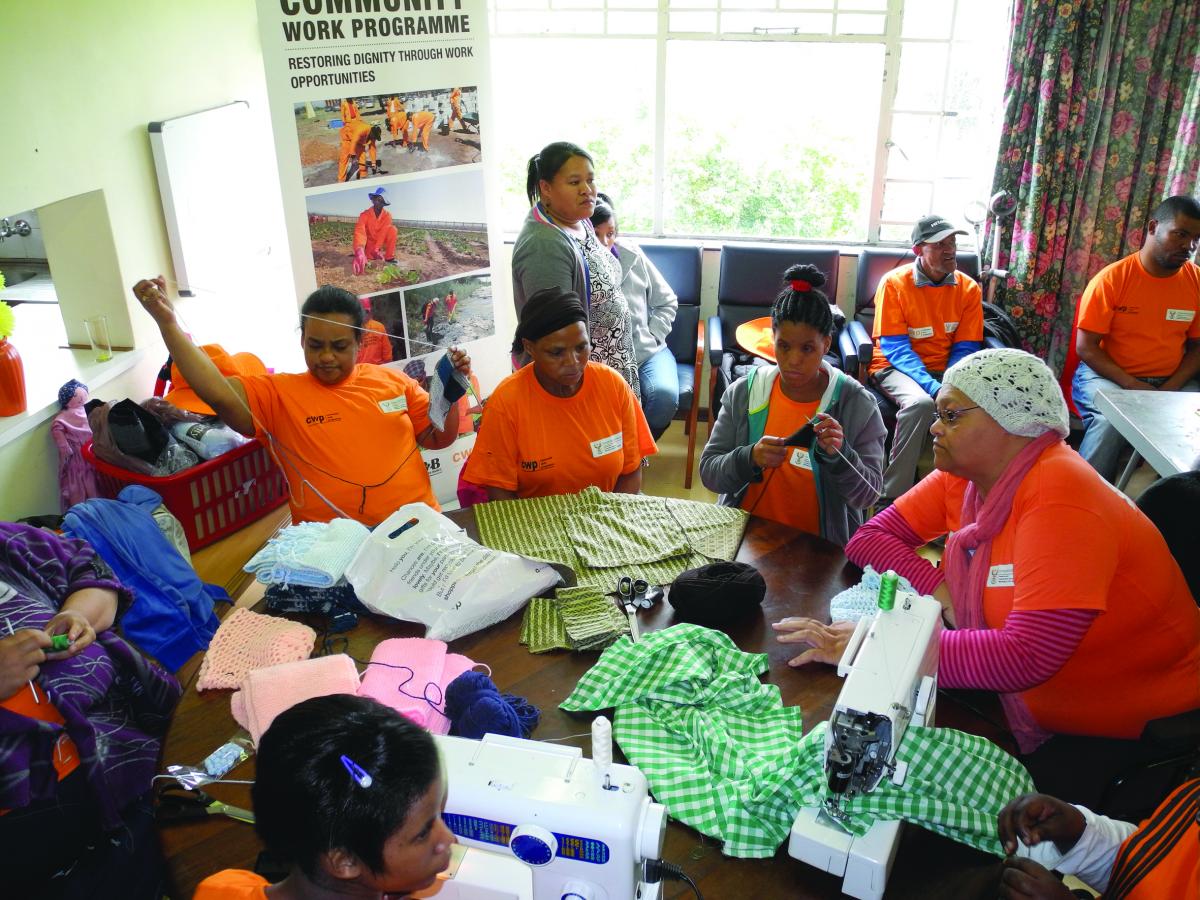 CWP work must be ‘useful work’ – work that contributes to the public good or the improvement of living conditions in poor communities and the quality of life of the residents of those communities. Community participation and support has transformed feelings of despair into those of hope. There are indications that the programme is improving people’s lives.
CWP work must be ‘useful work’ – work that contributes to the public good or the improvement of living conditions in poor communities and the quality of life of the residents of those communities. Community participation and support has transformed feelings of despair into those of hope. There are indications that the programme is improving people’s lives.
To check if you qualify to register on the programme, phone 012 334 0600 or 0800 746 747
(Tollfree) or visit www.cogta.gov.za
Ahmed Kathrada’s work lives on
Ahmed Kathrada’s work lives on Estelle GreeffSport, arts & culture
Anti-apartheid activist Ahmed Kathrada died on 28 March 2017 at the age of 87. He devoted his life to serving his country.
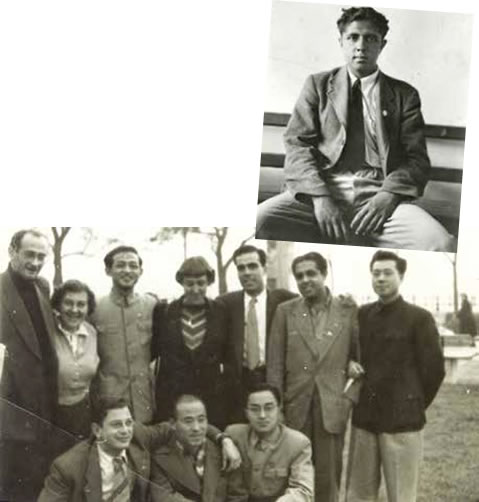 An activist to the end, Ahmed Kathrada has had an illustrious political career. He served between 1994 and 1999 as the parliamentary counsellor to the late President Nelson Mandela.
An activist to the end, Ahmed Kathrada has had an illustrious political career. He served between 1994 and 1999 as the parliamentary counsellor to the late President Nelson Mandela.
Kathrada was born on 21 August 1929 in rural Schweizer-Reneke in the North West.
At age of 12 Kathrada joined the Young Communist League. He was involved in the anti-war campaign of the Non-European United Front, was active against the Pegging Act (anti-Indian legislation) in 1941 and collected funds for the Bengal famine relief of 1943.
Kathrada who was 17 at the time also participated in the 1946 Passive Resistance Campaign led by the South African Indian Congress. He was part of 2 000 resisters, who were arrested and imprisoned for defying a law that discriminated against Indian South Africans.
Under the guidance of the Transvaal Indian Congress leader, Dr Yusuf Dadoo, Kathrada later befriended emerging ANC leaders such as Walter Sisulu, former President Nelson Mandela and Oliver Tambo.
In 1952, Kathrada was in a group of 20, including Mandela and Sisulu, who were sentenced to nine months in prison with hard labour, - suspended for two years, - for organising the Defiance Campaign against six unjust apartheid laws. In 1954, he was placed under restrictions by apartheid security police and was arrested several times for breaking defying his banning orders.
Treason Trial
In 1956, Kathrada was among the 156 Congress activists and leaders charged for High Treason. He went through the marathon Treason Trial until the acquittal of the last batch of the accused in March 1961. Even during the trial, he continued his political work. The regime restricted Kathrada to Johannesburg in 1957.
Going Underground
In 1961 Kathrada joined the Umkhonto we Sizwe (MK) he had already been a veteran of the struggle for 20 years
Kathrada soon realised that his aptitude lay in doing political work rather than in the military field. After consultation with close comrades, he terminated his membership of the Regional Command of MK during early 1962. Kathrada was also part of a small committee that was responsible for the transport and security of former President Mandela who was also operating underground. They made arrangements for President Mandela to illegally leave South Africa to canvass support from the newly independent African countries for both the ANC and MK.
On the 17th April 1963, Kathrada was instructed by the SACP to go underground and relocate to Liliesleaf Farm in Rivonia.
After a short spell at Liliesleaf, he moved to a garden cottage in Mountain View, a Johannesburg suburb.
Rivonia Trial
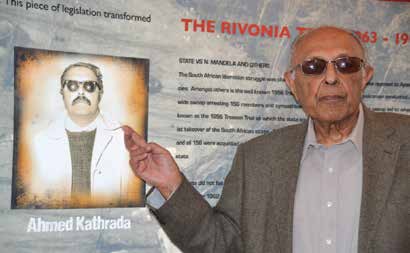 On the 11th of July 1963, Liliesleaf farm was raided, and Kathrada was arrested with all those who were present and held under the 90 days detention law. Thereafter, Kathrada was charged under the Sabotage Act, in what infamously became known as the Rivonia Trial.
On the 11th of July 1963, Liliesleaf farm was raided, and Kathrada was arrested with all those who were present and held under the 90 days detention law. Thereafter, Kathrada was charged under the Sabotage Act, in what infamously became known as the Rivonia Trial.
In October 1963, eleven leading opponents of apartheid went on trial for their lives on charges of sabotage.
In November 1963 Kathrada along with Nelson Mandela, Walter Sisulu, Govan Mbeki, Raymond Mhlaba, Denis Goldberg, Elias Motsoaledi, Rusty Bernstein, James Kantor and Andrew Mlangeni appeared in the Pretoria Supreme Court charged on two counts of sabotage. All ten accused pleaded not guilty to all charges.
Seven of the trialists were incarcerated on Robben Island Prison, and Goldberg was sent to Pretoria Central Prison because white prisoners were not allowed on Robben Island.
Life after Robben Island
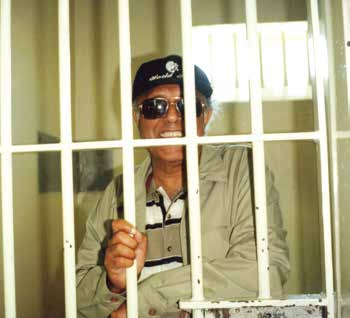 Kathrada spent over 26 years in prison, 18 of which were on Robben Island. While in prison, he obtained four university degrees, namely a BA (in History and Criminology), B Bibliography (in African Politics and Library Science), BA Honours (History) and BA Honours (African Politics).
Kathrada spent over 26 years in prison, 18 of which were on Robben Island. While in prison, he obtained four university degrees, namely a BA (in History and Criminology), B Bibliography (in African Politics and Library Science), BA Honours (History) and BA Honours (African Politics).
In 1994, Kathrada was elected to Parliament and served as President Mandela's parliamentary counsellor. He was chairperson of the Robben Island Museum Council from 1997 until his term expired in 2006.
Building the ANC
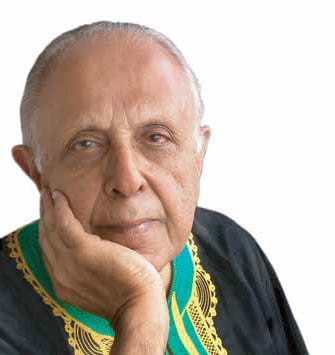 The ANC decided that the mainstay of its strategy during this time would be the re-establishment of the organisation in the country. This would entail building a mass organisation coupled with heightened mobilisation.
The ANC decided that the mainstay of its strategy during this time would be the re-establishment of the organisation in the country. This would entail building a mass organisation coupled with heightened mobilisation.
In 1991, at the first national conference since it’s unbanning, the ANC elected Nelson Mandela as its president. Kathrada was elected as a member of the National Executive Committee and appointed as head of public relations.Kathrada was also involved in all the major events including the Groote Schuur Minute in May 1990, the establishment of the Convention for Democratic South Africa (CODESA) and its resumption, in the form of the Kempton Park Negotiations.
Ahmed Kathrada Foundation
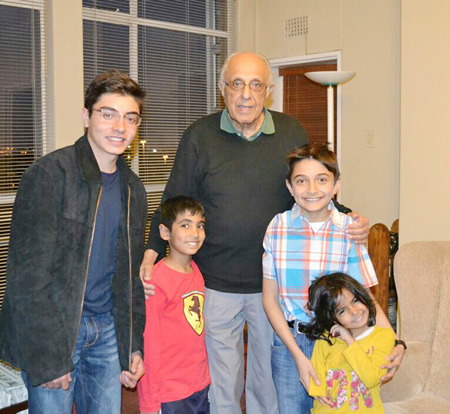 In 2008, the Ahmed Kathrada Foundation was launched with the aim of deepening non-racialism. Kathrada was an active participant in the foundation’s work.
In 2008, the Ahmed Kathrada Foundation was launched with the aim of deepening non-racialism. Kathrada was an active participant in the foundation’s work.
On March 4, Kathrada was hospitalised for surgery related to blood clotting on the brain. Kathrada passed away on March 28, at the age of 87.
He was buried at Westpark Cemetery in Johannesburg. Kathrada is survived by his wife, Barbara Hogan, also an ANC stalwart and veteran, who once served as Minister of Public Enterprises.
Information supplied by Ahmed Kathrada foundation
Borders, crime hotspots and drugs get attention
Borders, crime hotspots and drugs get attention lebangThe Justice, Crime Prevention and Security Cluster (JCPS) says this year it will accelerate the establishment of an integrated Border Management Authority.
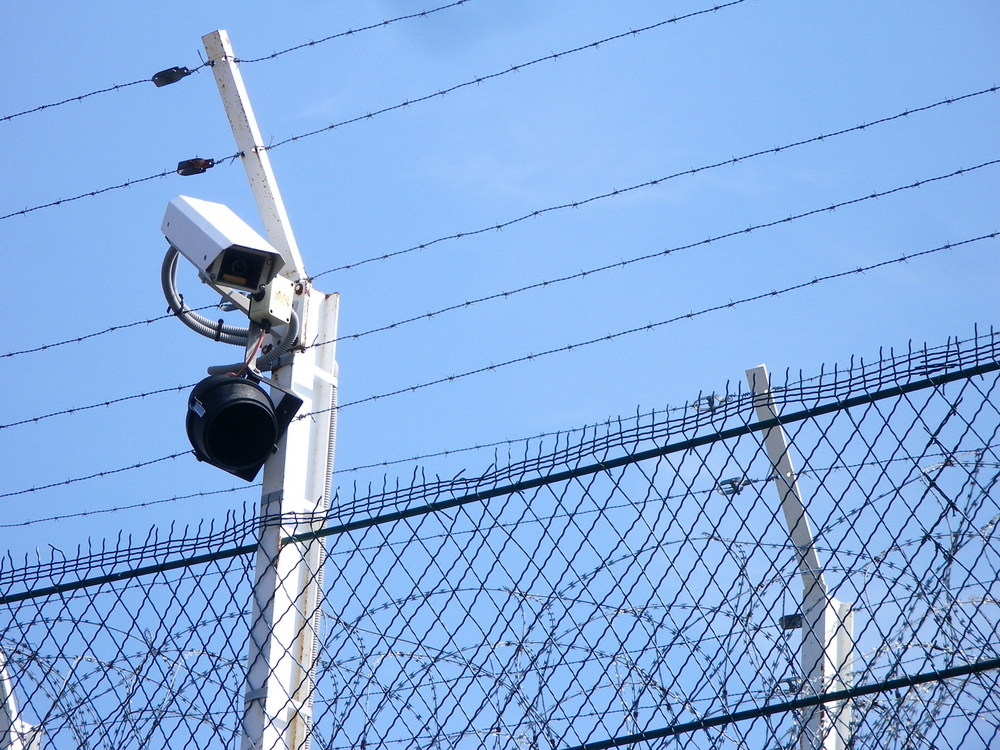 The aim is to improve border management, ensuring compliance with laws and the Constitution by citizens and foreign nationals. This means government is taking “a whole of state approach” to concerns raised by communities as well as promoting better dialogue on policing between communities and authorities.
The aim is to improve border management, ensuring compliance with laws and the Constitution by citizens and foreign nationals. This means government is taking “a whole of state approach” to concerns raised by communities as well as promoting better dialogue on policing between communities and authorities.
Anyone who feels that their rights are being infringed upon encouraged to report the matter to their nearest police station.
“We want to assure all people in our country that the law enforcement agencies are monitoring the situation on the ground closely.”
Crime hotspots
Regarding plans concerning the fight against crime in hotspots like Soshanguve, the cluster reported that the multi-disciplinary operations and deployments, in all station bordering the area, are being intensified.
A special team of detectives which deals with hijackings and robberies has been reinforced and communities have been urged to work closely with law enforcement agencies in this regard.
Drugs
Government is also intensifying the fight against drugs with the opening of seven public treatment facilities in Gauteng, KwaZulu-Natal, Western Cape, Mpumalanga and Eastern Cape.
“We have finished the building of three treatment centres in Limpopo and the North West. Two other treatment facilities are being built in the Free State and Northern Cape,” said Minister of Defence Mapisa-Nqakula.
Prevention programmes, such as education and awareness raising campaigns, are also being strengthened to support treatment services.
Business people give Invest SA thumbs up
Business people give Invest SA thumbs up JoyThe business community has welcomed the newly launched InvestSA One Stop Shop initiative.
Derrick Huang, managing director of international company Beyond Your Dreams (BYD) South Africa, says the concept of the one stop shop will make their lives as investors a lot easier.
This Chinese firm is primarily an IT and renewable energy company. It is listed on the Hong Kong and New York stock exchanges and has over 200 000 employees internationally.
“Invest SA is so nice. I know how difficult it is to have your visa or work permit extended in South Africa. This one stop shop will make things so much easier. China and South African relations are at an historical high. We are in the G20 and in Brics there are good things going on between the two countries.”
Huang said BYD had big plans for the South African market especially because BYD was into battery power storage, electric motor vehicles and the manufacturing of cell phones and tablets.
“We have done some business in South Africa. … We are now really making entrance in South Africa. We are very fortunate to come into the market when things are made much easier for us as investors.”
Launching InvestSA President Jacob Zuma said The One Stop Shop will provide a more coordinated, streamlined and professional service to those who wish to set up a business,” President Zuma.
Investors do not need to physically visit the dti to access the One Stop Shop. They can also find information online by visiting www.investsa.gov.za.
Centenary celebration of Oliver Tambo
Centenary celebration of Oliver Tambo Joy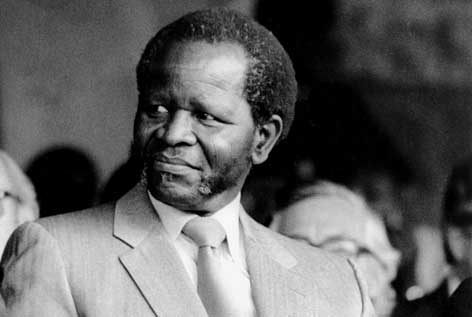 "We seek to create a united Democratic and non-racial society. We have a vision of South Africa in which black and white shall live and work together as equals in conditions of peace and prosperity. Using the power you derive from the discovery of the truth about racism in South Africa, you will help us to remake our part of the world into a corner of the globe - of which all of humanity can be proud."
"We seek to create a united Democratic and non-racial society. We have a vision of South Africa in which black and white shall live and work together as equals in conditions of peace and prosperity. Using the power you derive from the discovery of the truth about racism in South Africa, you will help us to remake our part of the world into a corner of the globe - of which all of humanity can be proud."
- Oliver Tambo speaking at Georgetown University on January 27, 1987.
Creating jobs, cleaning the environment
Creating jobs, cleaning the environment lebangYoung people in Secunda, Mpumalanga, have taken control of their future.
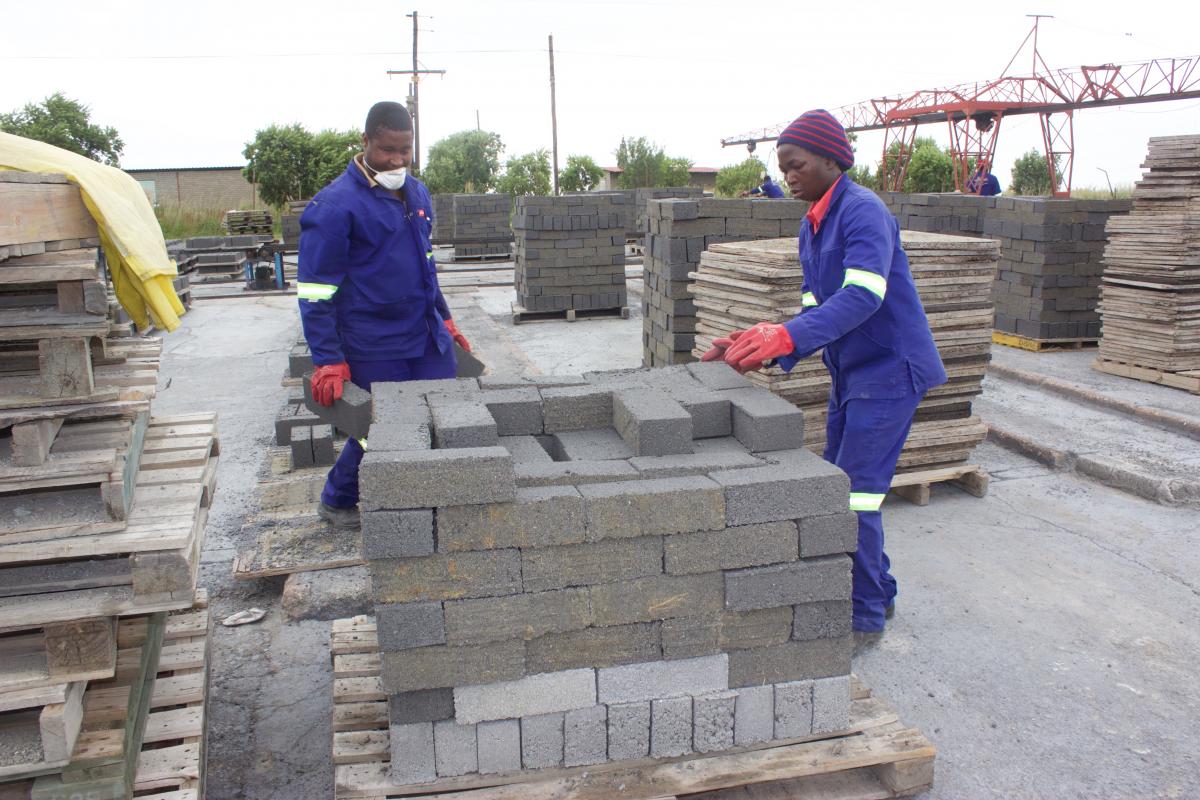 A group of young people who are part of the Govan Mbeki Fly Ash Consortium in Secunda are using fly ash from petrochemical giant Sasol to manufacture bricks, create jobs and clean the environment. They sell the bricks to local suppliers, construction companies, hardware store owners and individuals.
A group of young people who are part of the Govan Mbeki Fly Ash Consortium in Secunda are using fly ash from petrochemical giant Sasol to manufacture bricks, create jobs and clean the environment. They sell the bricks to local suppliers, construction companies, hardware store owners and individuals.
Fly ash is a waste by-product of the burning of coal for power and gasification. It contains toxins and metals and may be hazardous to humans and the environment when it leaches into underground water.
A group of companies owned by young people from various areas of the Govan Mbeki Local Municipality came together to form the Fly Ash Consortium and presented a proposal to the municipality.
The company, trading as Mr Brick, is situated close to the Sasol plant and has created 29 jobs for young people from the local municipality.
Out of the 29 jobs created, 19 are performed by males, and ten by females. Out of the 19 males, nine are youth under the age of 35; and out of the 10 females, five are young women. In total the factory employs 14 young people under the age of 35.
One of them is 26-year-old Tshidi Motloung from Embalenhle. Motloung has worked at the factory for six months.
“Since I started working here I am able to pay rent and assist my parents with groceries.”
Bayanda Maseko, managing director at Mr Brick, says the factory produces maxi bricks and hollow blocks.
“
We produce about 6 500 maxi bricks per day, and 136 000 per month and we supply local hardware stores around Secunda.
“We also supply walk-in customers who need to purchase the bricks and we’ve got an account with some shops from around Secunda which are our regular customers.”
The business started in April 2016 and so far Maseko is happy with the progress.
“The business has been running well and there’s plenty of room for improvement.”
Though the business is doing relatively well, there have been challenges. Maseko said one of the major challenges they face is proper additional equipment.
“There’s a few things that we need to optimise our production. One of the things we need is an additional trailer and a forklift because the one we have now is old.”
However Maseko says they will not be deterred by the shortage of equipment.
“We make do with what we have, don’t get me wrong. We are able to run the business and we [are] running it very well but there is room for improvement.”
Durban to get massive automotive hub
Durban to get massive automotive hub lebangThousands of young people in KwaZulu-Natal stand to benefit from a R11 billion automotive hub.
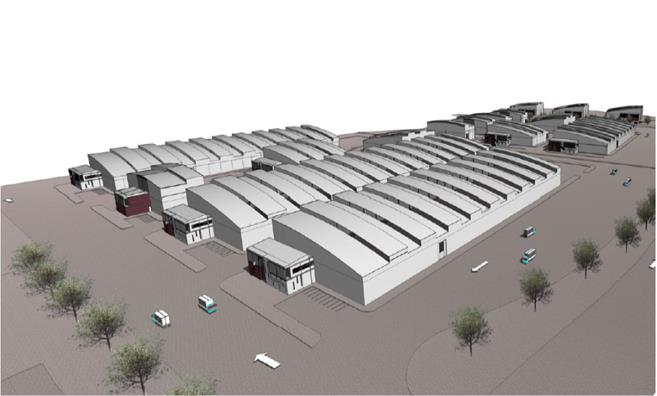 The Durban Automotive Supplier Park (DASP), which is expected to commence this year, is expected to create 6 000 jobs for unemployed youth, 60 percent of them women.
The Durban Automotive Supplier Park (DASP), which is expected to commence this year, is expected to create 6 000 jobs for unemployed youth, 60 percent of them women.
The R11 billion project is a partnership between eThekwini Municipality, Toyota and the Dube TradePort.
The automotive hub will occupy 100 hectares of land in Illovo, south of Durban, and aims to attract component manufacturing and car assembly firms.
Head of Development Planning, Environment and Management at eThekwini Municipality Musa Mbhele said the development is expected to create 2 500 jobs during construction and 6 000 permanent jobs after completion.
“This massive auto development will play a huge role towards achieving the objectives of South Africa’s automotive production and development programme, which aims to boost local production to 1.2 million vehicles per annum by 2020.
“We are faced with a high unemployment rate and our responsibility is to invest in sectors that make a significant contribution to employment directly and indirectly. As it stands, the Durban Automotive Cluster, which is funded by the municipality, represents 39 firm members and collectively employs approximately 17 000 people,” said Mbhele.
An exciting component of the project is a school of project management funded by Toyota. The school has a specific focus on building local knowledge and developing technical skills to strengthen the automotive trade and ensure the sector employs local people.
“This is a very exciting project for future generation because Toyota has advanced in developing suitable programmes and has already linked with the best, internationally recognised universities to ensure better quality education,” Mbhele said.
Government is transforming the economy
Government is transforming the economy lebangVarious initiatives aimed at transforming sectors of the economy are at an advanced stage. The initiatives, which were planned from 2015, are setting in place conditions to meet the National Development Plan’s (NDP) goals of reducing poverty, promoting economic growth and job creation.
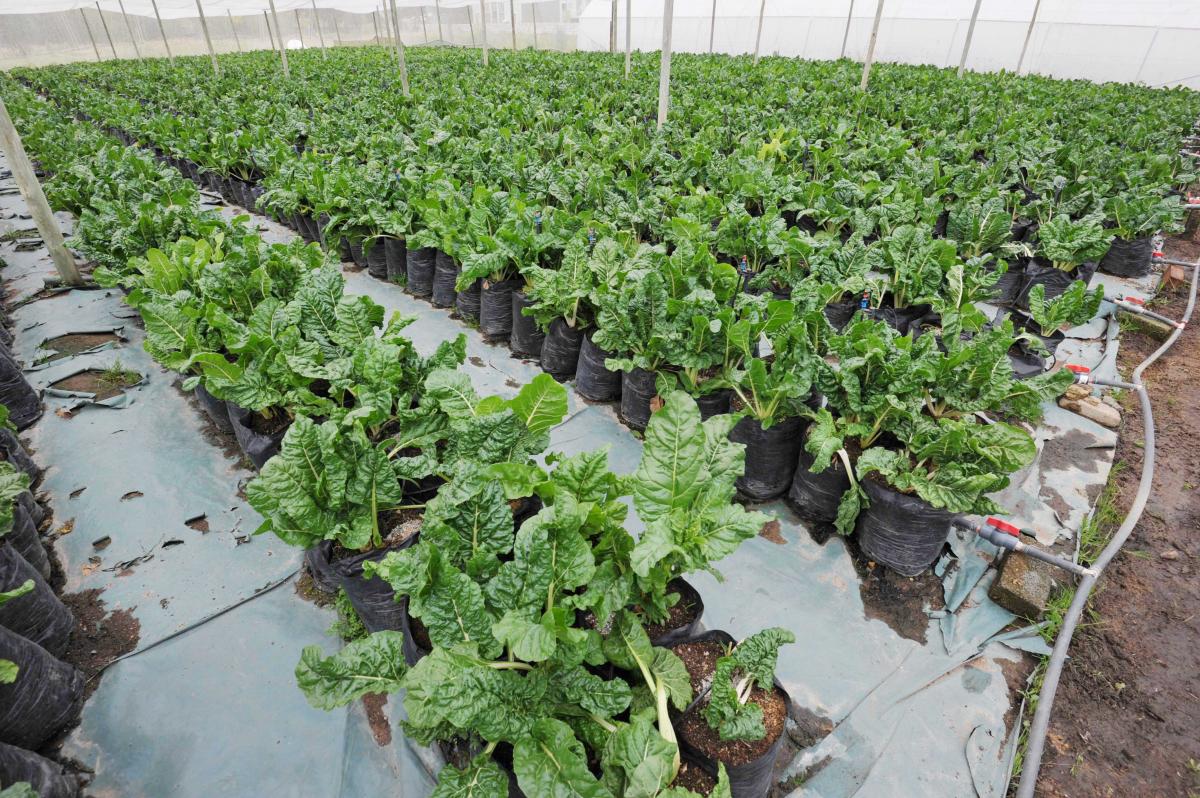 Chairperson of the Economic Sectors, Employment and Infrastructure Development Cluster and Minster of Rural Development and Land Reform Gugile Nkwinti says a lot of progress has been made in implementing the plans.
Chairperson of the Economic Sectors, Employment and Infrastructure Development Cluster and Minster of Rural Development and Land Reform Gugile Nkwinti says a lot of progress has been made in implementing the plans.
“Since the President announced the plan in his 2015 State of the Nation Address we have put in place initiatives to boost economic growth, create much-needed jobs and draw more South Africans into the productive sectors of the economy.
“There has been improved policy coordination, infrastructure development and skills development. Advances have also been made into the lucrative economic sectors of the oceans economy and tourism, industrialisation and unlocking the potential of small businesses.”
Revitalising agriculture and agro-processing
Since 2015, the construction of 11 agri-hubs has started. Three of them have been completed and are in operation; 90 black farmers have received support from government; and money has been invested to recapitalise over 600 farms.
“The cluster is proud to announce that many of the initiatives planned in 2015 are at an advanced stage of implementation.” The Minister reported the following achievements:
- The construction of 11 agri-hubs and 12 farmer production support units is underway. The Ncora, Springbokpan and Westonaria agri-hubs are now operational.
- Of the 66 proposals received under the 50/50 policy framework, 13 of them, amounting to 90 191 hectares (ha) worth R631 million, have been finalised. These will benefit 921 households. Forty three additional proposals are being processed.
- The One Household, One Hectare Programme approved 154 sites which will benefit 6 000 households.
- R1 billion has been invested to recapitalise 611 farms, thus cultivating 526 452 ha of land that would be lying fallow.
- Ninety black commercial farmers will be supported through the Commercialisation Support Programme, which targets 450 black smallholder farmers by 2022.
Having the right manager is crucial
Having the right manager is crucial JoyThe Ravele Community Property Association in Levubu, Limpopo, received 16 macadamia, avocado, banana, sweet potato and litchi farms worth R42 million from government in 2005.
An agency called South African Farm Managers (SAFM) managed the farm. The agency’s role is to teach communities to use restituted land successfully.
In 2007, Danie Basson was appointed as Chief Production Officer of SAFM.
Bethuel says the CPA and SAFM did not see eye to eye on a number of things pertaining to the running of the farm.
“One of the major issues is that they did not support the production process designed by the chief production officer and us as the CPA.”
The disagreement led to the collapse of the agreement between Ravele CPA and the managing agent.
After the disbandment of the agreement, the CPA hired Basson directly to manage the four business units. They are Applefontein & Bull, Machikiri & Britz (banana), EMS (macadamias, litchis and avocadoes) and Redbank (macadamias).
The CPA gave Basson a six-month contract and within the six months he had performed wonders on the farm. “He developed sound production processes that brought the units back to life and based on his work ethic we then decided to give him a five year contract.”
The CPA sells its produce to markets in Pretoria and Johannesburg (litchis). It exports macadamias to China, the United States, the Middle East, Europe and Canada. The avocadoes are exported to France.
Increasing Industrial Parks
Increasing Industrial Parks lebangMinister Gugile Nkwinti says industrialisation and the establishment of industrial parks will be scaled up by establishing black industrialists, expanding industries supplying the infrastructure build programme, investing in manufacturing sectors and setting up Special Economic Zones.
Minister of of Rural Development and Land Reform Nkwinti says more than R20 billion in industrial finance was approved last year, creating 27 000 direct jobs and approximately 108 000 indirect jobs.
This month, two industrial parks will be launched. The first phase of the upgrade of Babelegi Industrial Park in Hammanskraal north of Pretoria and Vulindlela Heights in Mthatha will start. Over R180 million has been committed to upgrade six industrial parks across five provinces.
The Black Industrialists Programme launched by the Department of Trade and Industry has also made some progress in creating jobs.
“The Black Industrialist Programme supported 27 entrepreneurs, leveraged R2.5 billion in private sector investment and created 5 235 direct jobs,” said Minister Nkwinti.
Jobs: Office of the Public Service Commission - Apr 2017
Jobs: Office of the Public Service Commission - Apr 2017 Estelle GreeffThe Office of the Public Service Commission is an equal opportunity, representative employer. It sees itself as an employer that embraces and promotes representivity (race, gender and disability) in the Public Service through the filling of positions. Candidates whose appointment/transfer/promotion will promote representivity will therefore receive preference. Persons with disability are especially encouraged to apply. An indication of representivity profile by applicants will expedite the processing of applications.
Deputy Director-General: Integrity and Anti-corruption
Head Office, Pretoria
Reference: DDG/IAC/03/2017
This is a re-advertisement. Candidates who previously applied are encouraged to re-apply.
Salary: All inclusive remuneration package of R 1,267,806 per annum. The package includes a basic salary (70% of package), State’s contribution to the Government Employees Pension Fund (13% of basic salary) and a flexible portion of 30% that may be structured in terms of applicable rules. The successful candidate will be required to enter into a performance agreement within three months after assumption of duty
Key requirements: The Public Service Commission requires the services of a technically experienced person to support it to fulfill its constitutional mandate and for this purpose she/he should have ● An appropriate recognised Bachelor’s degree (NQF level 7) and an Honours degree or equivalent qualification (NQF Level 8) in the fields of Social Sciences, Law and/or Public Administration and/or Development Management ● A minimum of 8 to 10 years’ experience in Senior Management Level, Knowledge of the latest trends and initiatives in Integrity and Ethics, Anti- Corruption fields or investigations fields.
Enquiries: Mr DC Ndlondlolozi, Tel: 012 352 1212
Deputy Director-General: Monitoring and Evaluation
Head Office, Pretoria
Reference: DDG/M&E/03/2017)
This is a re-advertisement. Candidates who previously applied are encouraged to re-apply.
Salary: All inclusive remuneration package of R 1,267,806 per annum. The package includes a basic salary (70% of package), State’s contribution to the Government Employees Pension Fund (13% of basic salary) and a flexible portion of 30% that may be structured in terms of applicable rules. The successful candidate will be required to enter into a performance agreement within three months after assumption of duty
Key Requirements: The Public Service Commission requires the services of a technically experienced person to support it to fulfill its constitutional mandate and for this purpose she/he should have ● An appropriate recognised Bachelor’s degree (NQF level 7) and an Honours degree or equivalent qualification (NQF Level 8) in the fields of Social Sciences and/or Public Administration and/or Development Management ● A minimum of 8 to 10 years’ experience at a Senior Management Level, Public Administration, Monitoring and Evaluation, Governance and Monitoring, Data Management, Research and Analysis at the Chief Director level.
Enquiries: Mr DC Ndlondlolozi, Tel: 012 352 1212
Chief Director: Leadership and Human Resource Reviews
Head Office, Pretoria
Reference: CD: LHRR/03/2017
This is a re-advertisement. Candidates who previously applied are encouraged to re-apply.
Salary: All inclusive remuneration package of R 1 042 500 per annum. The package includes a basic salary (70% of package), State’s contribution to the Government Employees Pension Fund (13% of basic salary) and a flexible portion of 30% that may be structured in terms of applicable rules. The successful candidate will be required to enter into a performance agreement within three months after assumption of duty
Key Requirements: An experienced person with an appropriate recognized Bachelor’s degree or equivalent qualification (NQF Level 7) in Public Management, Social Sciences or related field An Appropriate post-graduate qualification (New NQF level 8 and above) ● 5 years experience at a Senior Management level as well as in the field of human resource management with specific reference to conditions of service and performance evaluation in the Public Service.
Enquiries: Ms KG Sedibe, Tel: (012) 352 1206
Chief Director: Professional Ethics
Head Office, Pretoria
Reference: CD/PE/03/2017
Salary: All inclusive remuneration package of R 1 042 500 per annum. The package includes a basic salary (70% of package), State’s contribution to the Government Employees Pension Fund (13% of basic salary) and a flexible portion of 30% that may be structured in terms of applicable rules. The successful candidate will be required to enter into a performance agreement within three months after assumption of duty
Key Requirements: An experienced person with an appropriate recognized Bachelor’s degree or equivalent qualification (New NQF Level 7) in Public Management, Social Sciences or related field ● a Master’s degree (New NQF Level 8) will serve as an advantage ● 5 years experience at a Senior Management level in the field of Professional Ethics.
Enquiries: Ms BP Lerumo, Tel: 012 352 1195
Pretoria Director: Human Resource Best Practice (1)
Head Office, Pretoria
Reference: D: HRBP1/03/17
Salary: All inclusive remuneration package of R898 743 per annum. The package includes a basic salary (70% of package), State’s contribution to the Government Employees Pension Fund (13% of basic salary) and a flexible portion of 30% that may be structured in terms of applicable rules. The successful candidate will be required to enter into a performance agreement within three months after assumption of duty
Key Requirements: An experienced person with an appropriate recognized Bachelor’s degree or equivalent qualification (New NQF Level 7) in Human Resource Management/Public Management/Social Sciences ● 5 years experience at a middle/senior management level in the fields of Human Resource Management, Public Service leadership and/or SMS conditions of service.
Closing date: 2 May 2017
To view the full details of these posts, including other requirements and key performance areas kindly log on the website www.psc.gov.za/vacancies
Justice, Crime Prevention and Security Cluster reports progress
Justice, Crime Prevention and Security Cluster reports progress lebangThe Justice, Crime Prevention and Security Cluster (JCPS) says it will continue to work hard to ensure that all South African citizens are and feel safe.
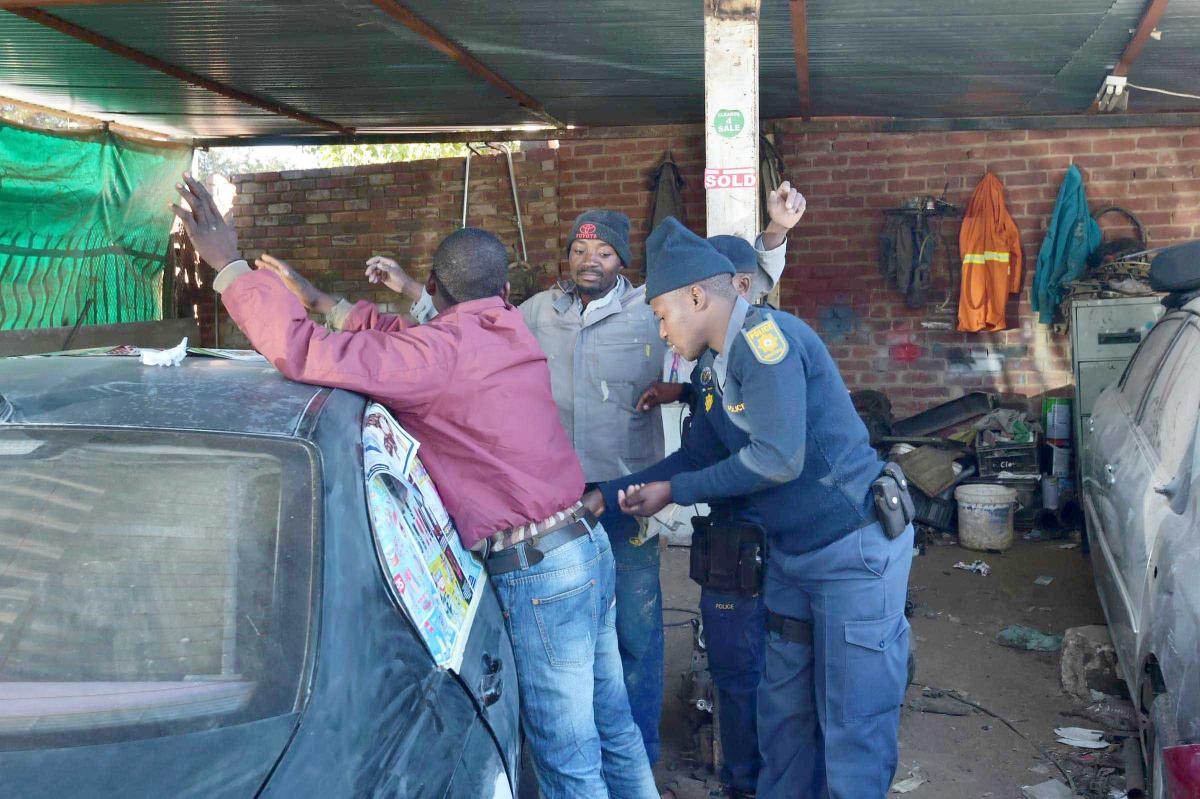 Statistical data indicates that the overall crime rate in South Africa has decreased. Data shows a decrease of 2.1 million crimes reported in the 12 months 2015 and 2016. The cluster says its work in the fight against crime will continue in earnest.
Statistical data indicates that the overall crime rate in South Africa has decreased. Data shows a decrease of 2.1 million crimes reported in the 12 months 2015 and 2016. The cluster says its work in the fight against crime will continue in earnest.
Government alone, however, cannot defeat the scourge of crime and corruption, cluster chair, Minister of Defence, Nosiviwe Mapisa-Nqakula said.
“We reiterate the call on all people and sectors in South Africa to join the fight against crime and corruption. The fight against crime cannot be separated from the need for transformation of the social and economic circumstances of our people, by tackling the three challenges of unemployment, poverty and the unequal distribution of the country’s wealth,” the Minister said.
Foreign nationals
Attacks on foreign nationals dominated the briefing, especially after recent attacks in Johannesburg and Tshwane against those accused of involvement in illegal activities, including drugs and prostitution.
Minister Mapisa-Nqakula said the Inter-Ministerial Committee on Migration is working on addressing the underlying causes of the tensions between communities and foreign nationals.
Some of the challenges that have been identified and are being addressed are the strict implementation of labour relations policies as they pertain to foreign nationals; the implementation of the laws that govern business licenses; the country‘s border management; and the country’s migration policies in general.
Networks to fight health threats launched
Networks to fight health threats launched Estelle GreeffInternational relations
Two information-sharing networks have been launched in Africa to help the monitoring, detection and response to diseases.
 African and international public health experts from governments, universities, and non-governmental organisations met in Addis Ababa at the end of March 2017 to coordinate prevention efforts and responses to disease threats in Africa through surveillance and laboratory networks.
African and international public health experts from governments, universities, and non-governmental organisations met in Addis Ababa at the end of March 2017 to coordinate prevention efforts and responses to disease threats in Africa through surveillance and laboratory networks.
Two new surveillance and laboratory networks will be established in all regions of Africa to accelerate the detection of outbreaks, enhance disease intelligence and prevention, and combat antimicrobial resistance.
Disease now under surveillance
The recently launched Africa Centres for Disease Control and Prevention (Africa CDC) is committed to strengthening Africa’s disease intelligence, outbreak response, and prevention capacity through surveillance and laboratory networks.
The Africa CDC also assists all African countries to improve surveillance, emergency response, and the prevention of infectious diseases. This includes addressing outbreaks, man-made and natural disasters, and public health events of regional and international concern. It further seeks to build capacity to reduce the disease burden on the continent.
Regional integrated surveillance and laboratory networks
Africa CDC and partners also established the Regional Integrated Surveillance and Laboratory Networks (Africa CDC RISLNET).
These surveillance and laboratory networks will be established by Africa CDC’s five Regional Collaborating Centres (RCCs) in Egypt, Gabon, Kenya, Nigeria and Zambia. They will collaborate with all available public health assets in their region, including universities, national public health institutes, private laboratories, centres of excellence, non-governmental organisations, and veterinary networks.
“This is the new spirit of practicing public health in Africa. We will be partnering effectively, collaborating closely, and using efficiently all public health assets in each region of Africa to improve detection and response,” said Dr. John Nkengasong, Director of the Africa CDC.
Africa CDC RISLNET will serve as the platform to implement Africa CDC’s five-year strategic plan, which its governing board endorsed recently. Between 2017 and 2018, Africa CDC will support countries and regions to map existing surveillance and laboratory networks, including private laboratories.
Africa CDC is also committed to combating resistance to antibiotics, which is estimated will be the cause of about 4 million deaths a year in Africa by
2050.
New changes to Cabinet
New changes to Cabinet lebangPresident Jacob Zuma has recently made changes to the National Executive in order to improve efficiency and effectiveness.
“The changes bring some younger members of Parliament (MPs) and women into the National Executive in order to benefit from their energy, experience and expertise.
“I have directed the new ministers and deputy ministers to work tirelessly with their colleagues to bring about radical socio-economic transformation and to ensure that the promise of a better life for the poor and the working class becomes a reality,” the President said.
New changes to Cabinet
 Ministers
Ministers
1. Minister of Energy, Mmamoloko “Nkhensani” Kubayi
2. Minister of Transport, Joe Maswanganyi
3. Minister of Finance, Malusi Gigaba
4. Minister of Police, Fikile Mbalula
5. Minister of Public Works, Nathi Nhleko
6. Minister of Sports and Recreation, Thembelani Nxesi
7. Minister of Tourism, Tokozile Xasa
8. Minister of Public Service and Administration, Faith Muthambi
9. Minister of Home Affairs, Professor Hlengiwe Mkhize
10. Minister of Communications, Ayanda Dlodlo
Deputy Ministers
1. Deputy Minister of Public Service and Administration, Dipuo Letsatsi-Duba
2. Deputy Minister of Finance, Sifiso Buthelezi
3. Deputy Minister of Public Enterprises, Ben Martins
4. Deputy Minister of Arts and Culture, Maggie Sotyu
5. Deputy Minister of Trade and Industry, Gratitude Magwanishe
6. Deputy Minister of Communications, Thandi Mahambehlala
7. Deputy Minister of Tourism, Elizabeth Thabethe
8. Deputy Minister of Police, Bongani Mkongi
9. Deputy Minister of Telecommunications and Postal Services, Stella Ndabeni-Abrahams
10. Deputy Minister of Small Business Development, Nomathemba November
New drugs to treat MDR-TB
New drugs to treat MDR-TB JoyAdvances in pharmacology mean that there are new drugs available for the treatment of Tuberculosis (TB) and drug-resistant, multi-drug-resistant and extensively drug-resistant TB. South Africa is the world’s biggest user of a new drug called Bedaquiline.
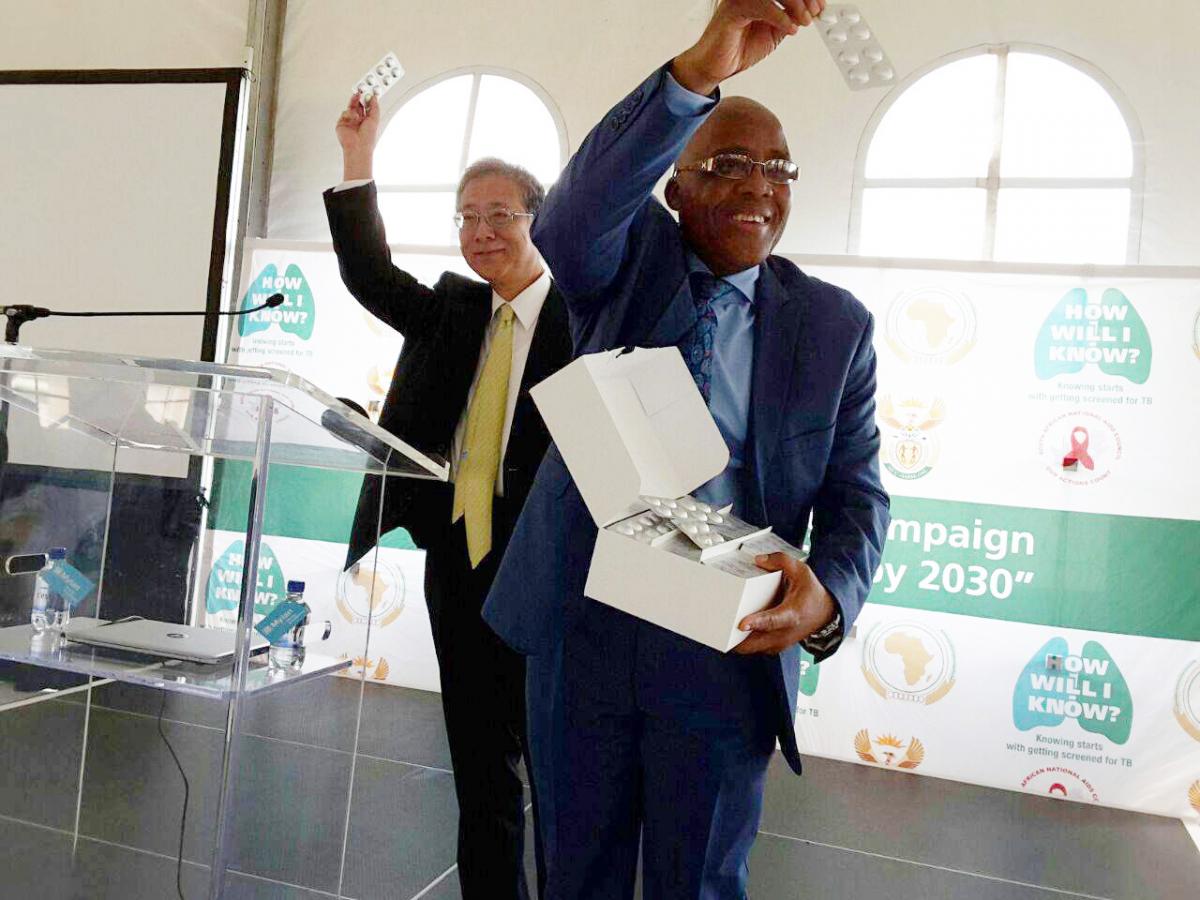 The Delamanid Clinical Access Programme will research new drugs to be used to treat Multidrug-Resistant Tuberculosis (MDR-TB) and manage and cure TB in South Africa.
The Delamanid Clinical Access Programme will research new drugs to be used to treat Multidrug-Resistant Tuberculosis (MDR-TB) and manage and cure TB in South Africa.
Minister of Health Dr Aaron Motsoaledi unveiled the programme at Sizwe Tropical Disease Hospital in Gauteng recently.
The new drugs’ biggest advantage is that they are the least-resisted and much more effective than other TB medicines.
“It is much more tolerable especially among children, HIV co-infected and diabetic patients and these are key patient groups that are usually more difficult to treat successfully.”
The European Medicines Agency approved the drug in 2014 for the treatment of adult pulmonary MDR-TB. It has since been distributed to about 45 countries and over
2 100 patients.
Minister Motsoaledi said his department has secured approval from the Medicines Control Council (MCC) to make the drug available initially to 400 patients in Gauteng, KwaZulu-Natal, North West and Western Cape as part of a research project.
TB is curable
Dr Motsoaledi said TB is the biggest killer of all the infectious diseases.
“TB is curable, especially if it is sensitive to drugs and detected early.
However, we are also witnessing a disturbing increase in drug-resistant TB.”
He said drug resistant TB is on the rise and being transmitted amongst people who have never had TB, meaning that DR-TB is being acquired through primary infection.
“Not only is DR-TB difficult to treat, with diminished chances for successful treatment, it is also very expensive. Officials in the National Department of Health estimate that while it costs about R400 to treat a drug-sensitive TB patient this cost multiples a 1 000 times for MDR-TB and 2 000 times for XDR-TB.”
South Africa registers about 13 000 MDR-TB and 1 000 extensively drug-resistant (XDR) TB patients annually. He said several factors contribute to resistance to TB drugs, including late diagnosis, weak adherence to treatment, poor infection control and, most importantly, the unavailability of new drugs.
Bedaquiline works
“The medical response to TB is predominantly reliant on drugs discovered more than 50 years ago. It was only recently that a new TB drug, Bedaquiline, was developed. South Africa rapidly procured the drug, and we currently account for about 60 percent of patients receiving the drug globally.”
“Already, preliminary data shows better outcomes among the cohort of patients receiving this drug, with treatment success exceeding 70 percent, compared to about 50 percent among those still receiving the standard drug regimen.”
Dr Motsoaledi said the programme was a partnership between the Department of Health, Otsuka and Right to Care. Otsuka, sa Japanese company, is making the drug available free.
People affected most by the TB pandemic are miners, mining communities and their families, correctional facilities, deep outlying rural areas, farming communities and their schools, peri-mining communities and correctional services as well as early learning centres.
Dr Motsoaledi said he hopes that the patients at Sizwe and other hospitals around the country will benefit from the programme as well as the other initiatives government is implementing.
Political freedom has brought steady transformation
Political freedom has brought steady transformation JoyEvery year, Freedom Month and Freedom Day on 27 April move millions of South Africans to reflect on the day our nation ended the struggle against apartheid by defeating that system at the ballot box.
Since 1994, new generations of voters have come to appreciate the importance and power of the day 23 years ago when the nation achieved political freedom and set the country on the road towards the constitutional democracy we enjoy today.
More than two decades on, evidence of the damage inflicted by apartheid remains visible across our country manifesting itself in the way we live our lives.
However, this picture is changing rapidly and radically day by day.
A changing picture
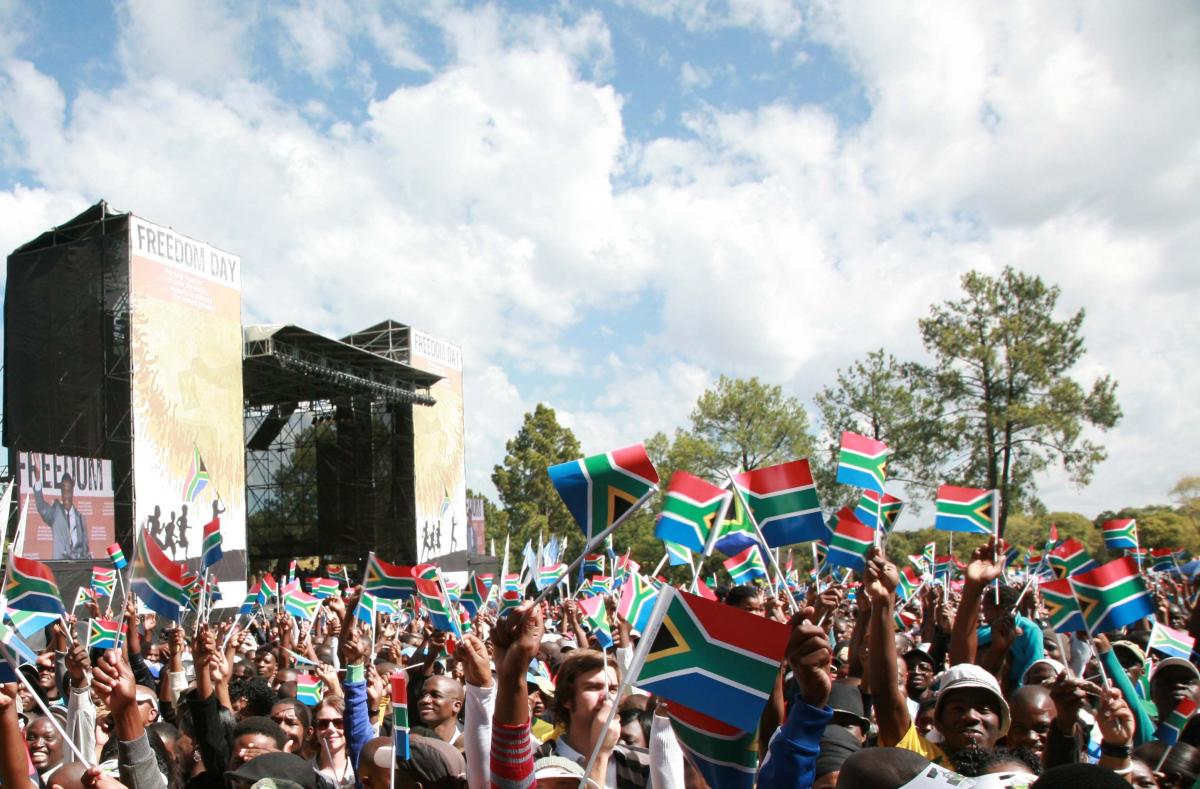 Freedom Month is a time for us not just to look back to 27 April 1994 but to look at every day since then, and to appreciate how much our country has changed for the better.
Freedom Month is a time for us not just to look back to 27 April 1994 but to look at every day since then, and to appreciate how much our country has changed for the better.
The lives and life chances of millions of South Africans have shifted closer to the future imagined in our National Development Plan.
The evidence of our transformation is steadily beginning to overwhelm the evidence of our terrible past, as our ANC-led government, supported by all sectors of society, moves South Africa forward.
Part of this evidence is government’s delivery of close to 4.5 million houses and subsidies since 1994, in line with the Freedom Charter’s declaration that there shall be houses, security and comfort.
Earlier this month, I launched the Westgate Social Housing Project in Vulindlela, Pietermaritzburg, in KwaZulu-Natal.
It caters for middle-income workers who struggle to secure decent and affordable accommodation for themselves and their families because they neither qualify for fully subsidised housing nor bonded houses.
Westgate and others like it give our working youth an opportunity to live in decent and well-located accommodation, and places South Africans of all races together in housing developments that are close to urban places of work.
This project is 100% rental stock catering for people earning a household income of between R1 500 and R7 500 a month.
The Westgate project is expected to cost close to R400 million, which includes funding from the private sector, and will ultimately feature 1 000 housing units accommodating close on 4 000 beneficiaries.
The KwaZulu-Natal provincial government alone has built close on 500 000 units since 1994, meaning the lives of close on 2 000 000 beneficiaries have been changed for the better by this government.
Similar projects have been established at areas like Cosmo City in Gauteng, Klarinet in Mpumalanga, Cornubia in KwaZulu-Natal, Zanemvula in the Eastern Cape and N2 Gateway in the Western Cape, just to name a few.
Recently, further evidence that we are a government of action and impact was on display at Mbizana, the Eastern Cape hometown of the longest serving ANC President, the late uTata Oliver Reginald Tambo, who would have been 100 years old this year were he still alive.
At Mbizana we launched a Rural Enterprise Development (Red) hub, as one of government’s efforts to stimulate growth through agriculture and agro-processing.
This development will reduce poverty and address low levels of development in the Mbizana district where agriculture is the third highest contributor to the local economy.
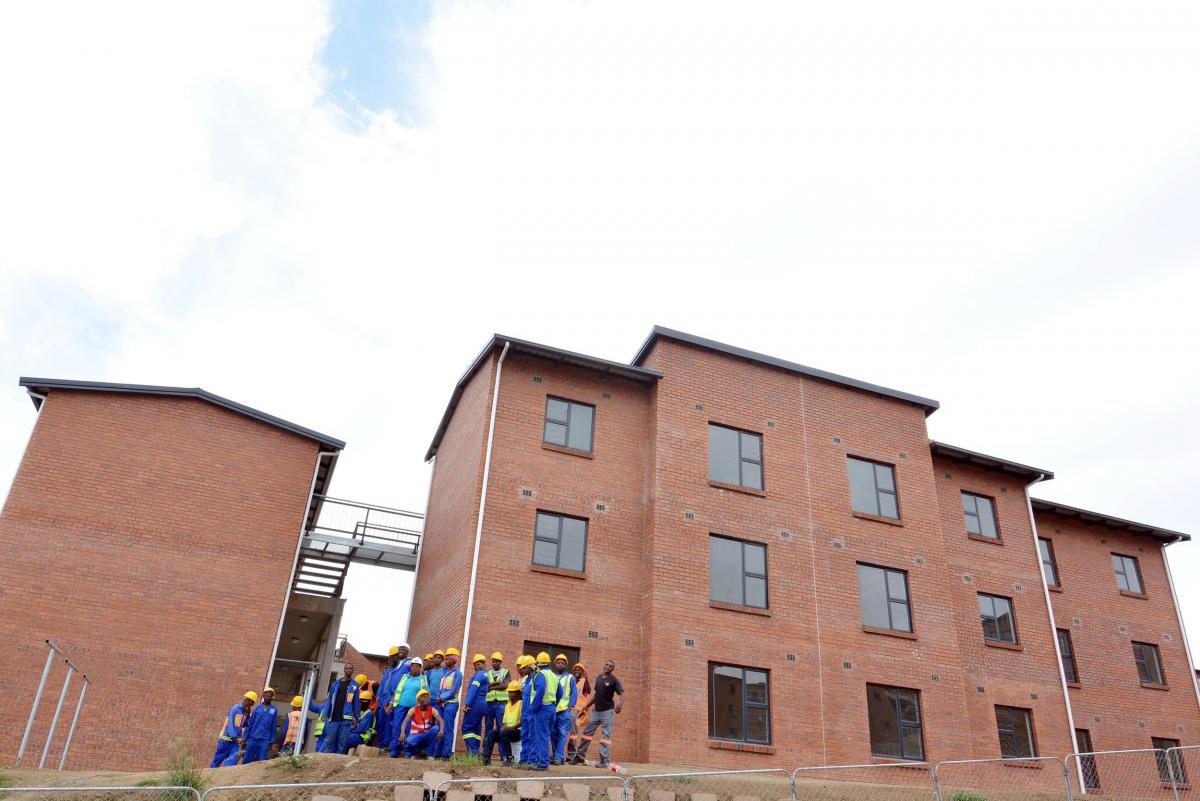 The Red Hub will stimulate local economic development and move production beyond agriculture and traditional subsistence farming to commercial farming.
The Red Hub will stimulate local economic development and move production beyond agriculture and traditional subsistence farming to commercial farming.
Government has also entered into a partnership with the Grain Farmers Development Association to plant maize in the Matatiele local municipality. Government has contributed R6.8 million in production inputs.
Fourteen farmers who own the land will be assisted with soil correction and crop insurance.
Government has also supported about 23 000 households with production inputs to promote household food security over the term.
Furthermore, 3 000 smallholder producers were supported with infrastructure, agricultural advice and inputs to increase sustainable food production in support of agrarian transformation.
Government has spent R100 million rand on the Ilima/Letsema national conditional grant projects aimed at eradicating poverty and stimulating the economy.
We are producing evidence of change every single day in this country.
While political analysts and media try to tell us daily that the country is in chaos and on the brink of some disastrous collapse, nothing can be further from the truth when we look at how South Africans are working together for a better life that gives meaning to Freedom Month and Freedom Day.
Ravele CPA is a great success
Ravele CPA is a great success JoyThe Ravele Community Property Association are making a success of the land they received after claiming for restitution. Today they sell their fresh produce locally and abroad.
When the Ravele community outside Makhado, Limpopo, lodged a claim for their ancestral land, government was worried that the claim would affect economic activity in the region.
Little did government know that the claim would bring together long-lost relatives, create jobs, feed the community and even offer sponsorship to young people from the area.
The Ravele community in Levubu, 30 km east of Makhado, was displaced from its ancestral land. Unlike many other communities across the country, they did not let their misfortune stand in their way.
Government transferred 16 macadamia, avocado, banana, sweet potato and litchi farms worth R42 million in the subtropical Limpopo area to the Ravele Community Property Association (CPA) in 2005.
The business has survived liquidation and turned its fortunes around.
The CPA made a profit of R9.7 million last year and has put away R11 million in investments since 2014. Their profit margins have been rising. In 2014, the CPA made R3.5 million and improved to R5.1 million in 2015.
Bethuel Ravele stands guard at the gate. It’s bucketing down and there is no sign of the rain letting up. It has been raining for the greater part of the week and the lush, drizzly and fertile Levubu valley outside Makhado is teeming with life.
The grass is green, mango trees cover the entire region and the banana trees resemble a green blanket stretching for kilometres. This is really Africa’s Eden.
The CPA represents 324 families with 880 beneficiaries with the majority of them living in nearby villages. The CPA was formed in April 2004 but the claim was lodged in 1995.
The tale of forced removal as told by his great-grandparents and his parents brings back sad memories for CPA chairperson Bethuel.
“They told us that the government of the day told them that this land is not suitable for black people because it is fertile and we had to make way for white people to come and stay in our land.
“They came and loaded our grandparents into trucks and gave them a small piece of land very far from here and others were taken to Nenzhelele.”
Since taking over the farms, the CPA in partnership with a managing agent has divided the area into four business units, each managed by one person supervising a group of farm workers.
The four business units employ 175 permanent staff who are all from the community and employ 51 seasonal employees.
“The majority of our employees are from the community because we want them to be part of this project because it is their land and we cannot do this without their support,” says Bethuel.
Ravele investing profit in education
Ravele investing profit in education JoyProfit from the sale of the Ravele Community Property Association’s (CPA) produce is shared among the beneficiaries. The CPA has also established a bursary fund that sponsors 40 students at different universities across the country.
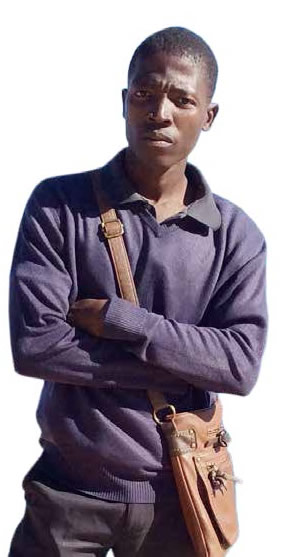 They are pursuing different fields of study at the University of Cape Town, the University of the Western Cape, Nelson Mandela Metropolitan University, the University of Johannesburg, University of the Free State and Sefako Makgatho Health Sciences University at a combined cost of R410 000 a year.
They are pursuing different fields of study at the University of Cape Town, the University of the Western Cape, Nelson Mandela Metropolitan University, the University of Johannesburg, University of the Free State and Sefako Makgatho Health Sciences University at a combined cost of R410 000 a year.
Dakalo Nemauluma is one of the bursars. He is reading for a Science Master's Degree in Chemical Engineering at the University of Cape Town.
Coming from a poor background, Nemauluma says he is grateful for the CPA’s support. “My parents are both unemployed and they hold piece jobs now and then to cover up the expenses for their survival.
“They cannot afford to pay for my university expenses and I hope to finish my Master’s degree by the end of next year so I can help them come out of poverty they have been living in from their childhood.”
He uses the money from the CPA to cover the cost of transportation, tuition, accommodation, food and books. “The sponsorship has helped me a lot and in various ways from the times when I didn't have enough money for accommodation, transport and tuition. The contribution this funding has made is invaluable.”
They CPA also sponsors the best Grade 12 learners from the community where the best learner is given R3 000, The learners placed second, third, fourth and fifth get R2 500, R2 000, R1 500 and R1 000 respectively.
“The aim is to encourage them to know that there is a reward if you work hard and study.
We also choose from the same pool to sponsor those who will go to university the following year.”
SA, CAR vow to grow ties
SA, CAR vow to grow ties Estelle GreeffInternational relations
South Africa and the Central African Republic have committed themselves to working together to enhance close political, economic and social cooperation for the mutual benefit of their people.
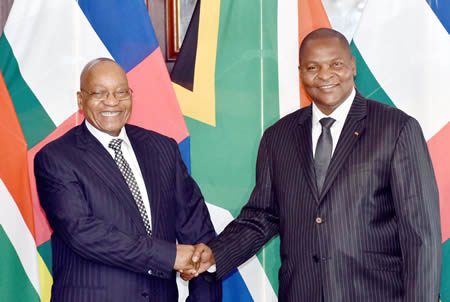 In this regard, the two countries have decided to establish a Joint Commission for Cooperation (JCC) which will manage and coordinate bilateral cooperation. This emerged recently when President Jacob Zuma hosted his CAR counterpart Faustin Archange Touadera, who is on a working visit, in Pretoria.
In this regard, the two countries have decided to establish a Joint Commission for Cooperation (JCC) which will manage and coordinate bilateral cooperation. This emerged recently when President Jacob Zuma hosted his CAR counterpart Faustin Archange Touadera, who is on a working visit, in Pretoria.
President Zuma and President Touadera have directed their respective Ministers of International Relations and Cooperation and Foreign Affairs and African Integration to work out the modalities of the JCC, which they believe will boost economic and trade relations between them.
President Touadera used his address to announce that they will build a monument to pay tribute to SANDF members who lost their lives there.
About 15 SANDF members died during clashes with Seleka rebels in the outskirts Bangui in 2013.
Twenty-seven were wounded in the battle. Pretoria had deployed 200 soldiers to CAR in January 2013 to support the poorly trained, ill-equipped government troops following an offensive that had been launched by the Seleka rebels in December 2012.
The SANDF were sent to CAR under an agreement between South Africa and then CAR President Francois Bozize.
“I would like to take this opportunity to thank President Zuma, the government of South Africa and the South African people who have supported us during the crisis that we experienced in our country. During that crisis there are some South African soldiers that shed their blood in our country,” said President Touadera.
Defence Minister Nosiviwe Mapisa-Nqakula said, “It is a very positive step to recognise, acknowledge and honour the soldiers who lost their lives in the line of duty. We hope that in that wall the names of the 15 South African soldiers will be written. For me that allows for us to close the chapter. It will allow for the families of these soldiers to go to the monument and honour their loved ones - a process that we will facilitate - and close the chapter.”
Small businesses can empower
Small businesses can empower lebangSmall businesses can make a meaningful contribution to empowering people and drawing new entrants into the economy. This is according to Minister of Rural Development and Land Reform Gugile Nkwinti.
“It is a focal area of the Nine-Point Plan which targets removing regulatory constraints, assists through 30 percent of state procurement and the development of a framework to strengthen and regulate the informal business sector,” said the Minister.
Developing small businesses
- The National Skills Fund and Small Enterprise Development Agency have set aside R84 million, of which R35.3 million has been paid to date to develop the capacity of small businesses nationwide.
- The Department of Small Business Development has dedicated 50 percent of its support to township enterprises and 30 percent to rural enterprises.
- The Pilot Informal Trader Upliftment Programme has benefited 1 000 informal traders. The number is projected to exceed 4 000 at the end of the 2016/17 financial year.
Social media under scrutiny
Social media under scrutiny lebangState Security Minister David Mahlobo said government is doing all it can to ensure that South Africa remains relatively safe and free of any attempts to destabilise it.
“Joint operations of all intelligence community structures will continue as well as the sharing of information critical to countering any threats … identified.”
However Minister Mahlobo raised concerns about the spreading of fake news and scams. He said they are looking at the regulation of social media.
“We are contemplating regulating the space. Even the best democracies that are revered, regulate the space,” Mahlobo said, acknowledging that this might interfere with human rights. As a result, there would be a lot of public consultation on the matter.
Other plans for the cluster include reviewing the National Crime Prevention Strategy, which was adopted in 1996.
The aim of the review will be to address new challenges that confront the criminal justice system.
South Africa is open for business
South Africa is open for business JoyTo help cut red tape and make it easier to launch a business in South Africa a one-stop-shop concept is being rolled out.
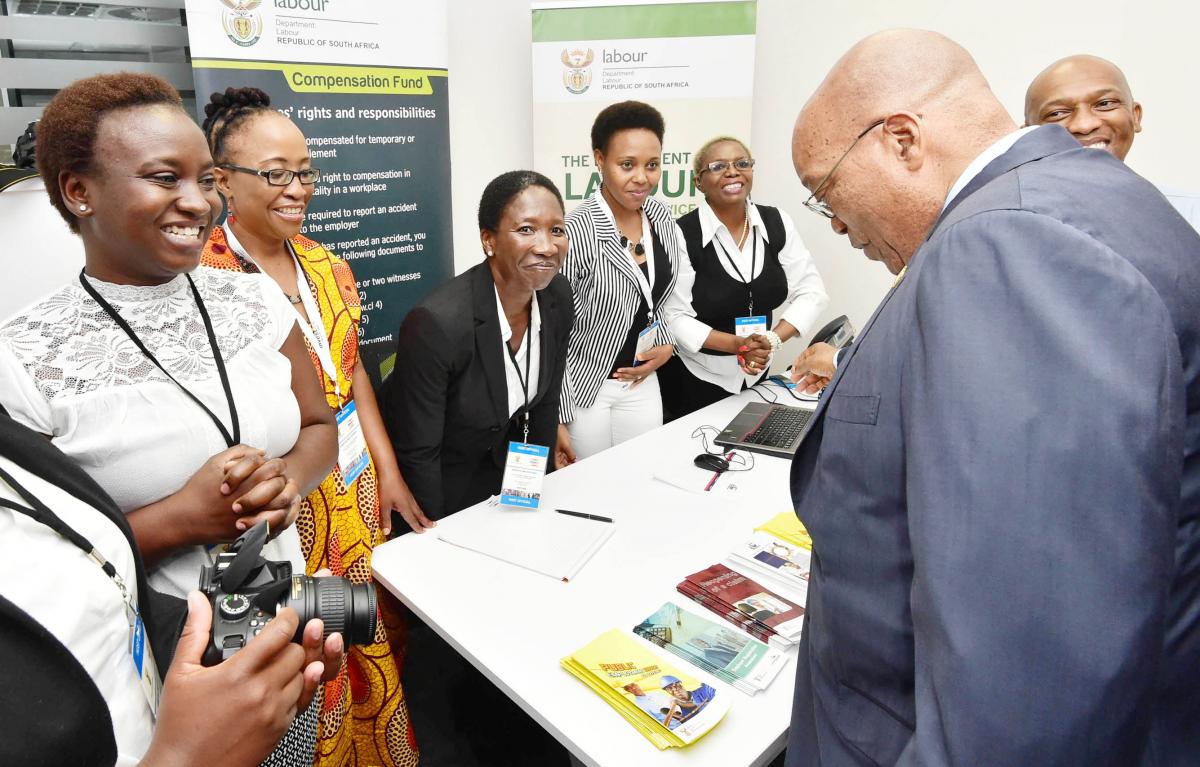 Launching InvestSA President Jacob Zuma said South Africa was open to foreign direct investment which is investors critical to economic growth and job creation.
Launching InvestSA President Jacob Zuma said South Africa was open to foreign direct investment which is investors critical to economic growth and job creation.
InvestSA is a one-stop-shop for investors at the Department of Trade and Industry (dti) head office.
“Government is determined to improve the business environment by lowering the cost … and improving the ease of doing business.”
President Zuma said provincial One Stops would also be launched this year.
“These will be known as InvestSA KZN, InvestSA Gauteng and InvestSA Western Cape and so forth as we roll our new Invest SA brand. Other provinces will open their One Stop Shops over a period of three years.”
Investors get one point of contact
For investors the InvestSA One Stop Shops will be the main point of contact with government. They will help investors to work with the relevant government departments involved in issuing permits and in regulatory, registration, and licensing processes.
Officials were instructed to keep the service simple and short.
Key departments such as home affairs, labour, environmental affairs, trade and industry and agencies such as the Companies and Intellectual Property Commission (CIPC), South African Revenue Service and Eskom amongst others will be available at the One Stop Shops.
President Zuma said: “Business people have outlined the difficulties and hassles they face when wanting to establish new businesses, both local and foreign investors." The President also said the CIPC has rolled out self-service terminals in banks, local economic development agencies and chambers of commerce offices for company registrations. By June this year self-service terminals will be rolled out to all provinces.
President Zuma said the One Stop Shop’s success will depend on the support of all stakeholders in the three spheres of government.
This month in history
This month in history Estelle GreeffAfrica news
Mass funeral for those killed at Sharpeville commemoration
Saturday, 13 April 1985
Eighty thousand black South Africans attended a mass funeral in KwaNobuhle township for the 28 people killed by police during a demonstration in Langa, Uitenhage on 21 March 1985. The demonstrators were observing the 25th anniversary of the Sharpeville massacre of 21 March 1960. The incident happened when marchers gathered in Langa preparing to move on to Kwanobuhle, 10 km away, where the commemorative service for the 1960 massacre was to be held. Unbeknown to the Langa demonstrators, however, the government had banned the event. Police opened fire on the crowd, killing between 20 and 43 people.
Information supplied by http://www.sahistory.org.za
Transport infrastructure
Transport infrastructure lebangBy the end of the current financial year, the final 10 trains bought by the Passenger Rail Agency of South Africa (PRASA) will be delivered from Brazil.
Some of Prasa’s new stock will be produced locally.
“Government has unveiled the construction of the local manufacturing plant for the new rolling stock in Dunnottar, Ekurhuleni. The plant will be completed and start operating in June 2017,” the Minister of Rural Development and Land Reform Gugile Nkwinti said in March.
The Moloto Rail Development Corridor is another strategic transport infrastructure project. The South African National Roads Agency Limited has commenced the planning phase of the project to upgrade the Moloto road. The project will stimulate the regional economy between Limpopo, Mpumalanga and Gauteng.
The upgrade of the N2 Wild Coast Toll Road, including 410 kilometres of road and construction of nine bridges, is underway. It will serve as a catalyst for regional economic development and link communities to job opportunities in the tourism and agricultural sectors.